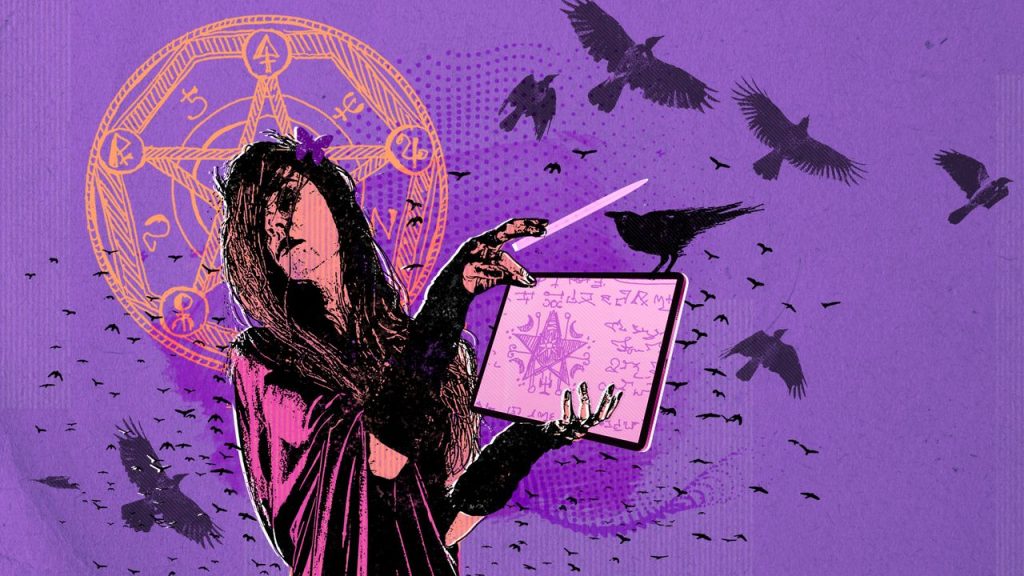Days before the fatal shooting of Maga activist Charlie Kirk, US news blog Jezebel published an article declaring that its staff had paid witches on Etsy to curse him. The bizarre coincidence of the post’s uncanny timing has put a spotlight on the thriving market for online spells.
Digital selling platform Etsy has become the “go-to site for spell-casting services”, said Taylor Crumpton in Time. Although these products were banned on the website in 2015, they are still being sold under the label of “entertainment services”.
‘A sense of peace and empowerment’
Witches have had a serious rebrand in the last few decades. Gone are the days of being social pariahs, the “expansive and multi-dimensional” depiction of witches in pop culture has brought with it a more positive view of witchcraft, said Crumpton.
One of the best-selling spells promises the purchaser a “perfect wedding day”, said Meena Alexander in Glamour. Nici, who runs the Etsy shop MoonstoneMysticMagic, told Alexander that American, British and Australian women make up most of her customer base, and their purchases are usually “wedding-related”. At £10, it is a small price to pay for a “sense of peace and empowerment as they face a life milestone”.
While wedding spells are the most popular, you can pay to “cast a spell for just about anything, on just about anyone”, said Kate Morgan in The Washington Post. However, witches themselves set their own ethical standards. Lindsay Squire, a UK-based practitioner, told the paper she has “rules around the type of spells she’ll perform” as she doesn’t want to “force someone to do something against their will”.
‘Monetising people’s search for meaning’
The popularity of online spell-casting coincides with the rise of the wellness industry, with “affirmations and manifestations” already part of many people’s daily vocabulary, said Crumpton in Time. And now social media “allows witches to connect with consumers from all over the world”, further facilitating the “commercialisation” of witchcraft.
Sceptics are doubtful because they “want to control the outcome, but you can’t”, said Tee, a full-time Etsy witch, in Cosmopolitan. Regardless of the ambiguity, “when outside circumstances are overwhelming, more people tend to reach for spirituality”.
We live in a “world full of scammers wanting to earn a quick buck amid the cost-of-living crisis”, said Hatti Rex in Dazed. Online charms are comparatively harmless, but the practice is essentially “monetising people’s search for meaning” and, ultimately, using the digital marketplace to trade in “hope, fear and heartbreak”.
From fixing your love life to hexing a colleague, online sorcerers offer a wide range of services
